More than 32,000 Bulgarian children in 43 countries on 6 continents will be heading for the 396 Bulgarian Sunday schools around the world registered for the school year 2024-2025. More than 2,000 teachers will be teaching them to read and write in Bulgarian, but also about Bulgarian history, geography, culture and tradition.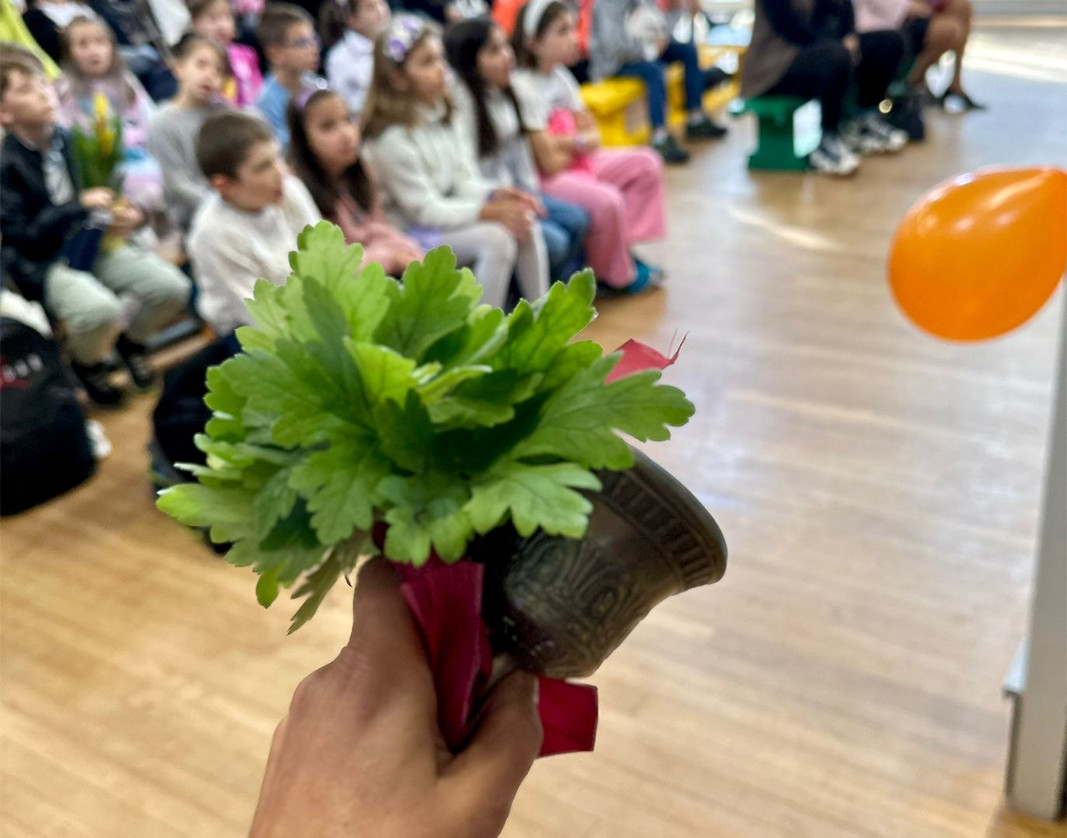
According to data of the Ministry of Education and Science, 268 of these schools (6 more than during the 2023-2024 school year) will receive funding during the current academic year amounting to almost 16 million Leva (approximately EUR 8.18 million). The funding will be allocated under the three programmes which were active last year – “Native language and culture”, “Bulgarians’ untold stories”, and “Bulgaria – educational itineraries”.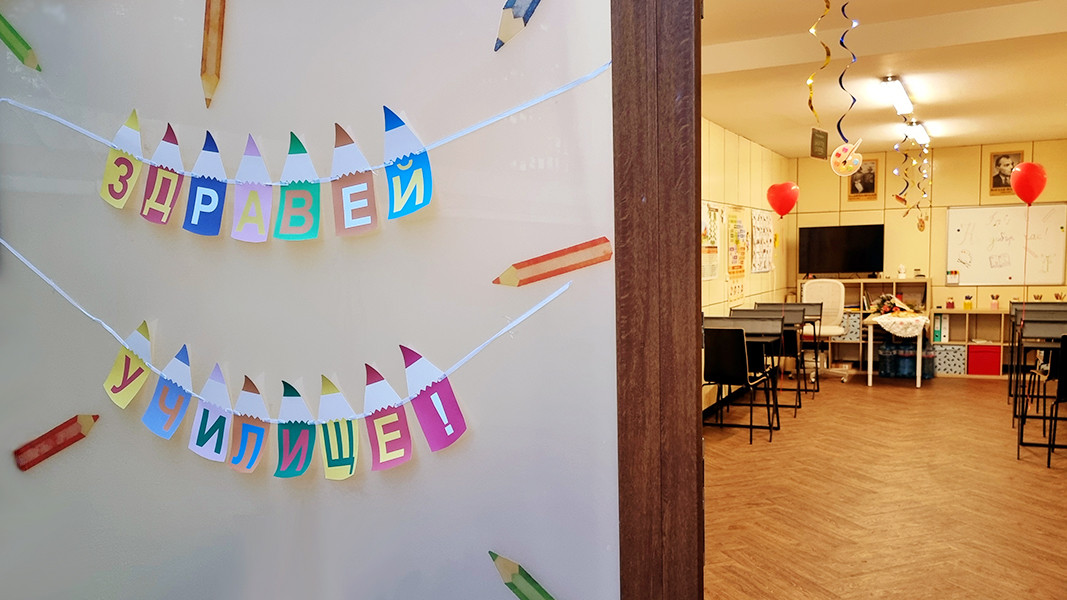
At the latest annual conference of the Association of Bulgarian Schools Abroad at the end of July in Sofia, the participants noted that the educational establishments outside the country need assistance to find premises for the schools. And one important thing – they also need financing for these premises, Evelina Avramova, spokesperson for the Association said in an interview with Radio Bulgaria.
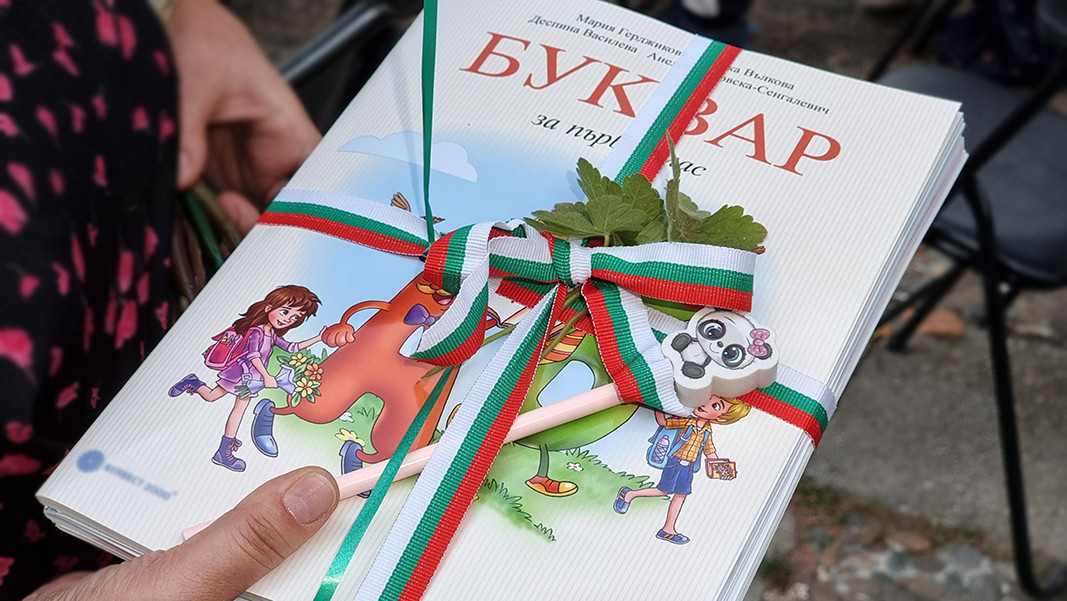
The biggest number of Bulgarian Sunday schools are in Europe – 331, in North America there are 52. On the biggest and most populous continent – Asia – there are 7 Bulgarian Sunday schools. One of these schools is in Kuwait – and it is the only one there – and it operates as part of the Bulgarian embassy there.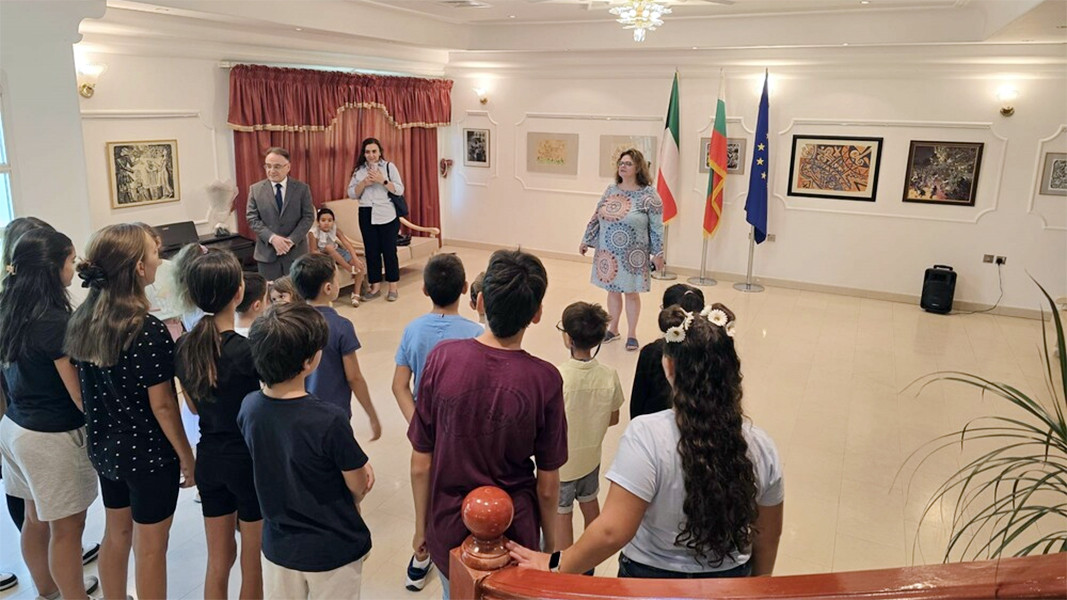
The Sunday school Saints Cyril and Methodius was founded by Tanya Maleshkova, on the initiative of the Bulgarian community there, in 2007, and it has been functioning ever since uninterruptedly with the support of the Bulgarian authorities. Every year around 30 children aged 4-18 attend the school, divided up into several classes plus one preparatory class. Attendance is on Fridays, which is officially a weekend day in Kuwait, in the embassy building.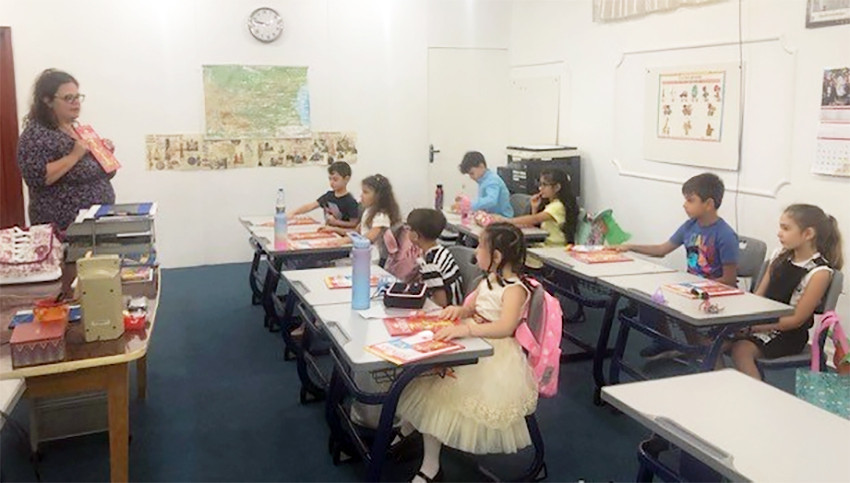
For Milena Baeva, who lectures mathematics at Kuwait University, this will be the 8th year in which she will be headmistress of the Bulgarian Sunday school Saints Cyril and Methodius. She says the school is a grand passion of hers, and that is why she has been giving up her days off even though she has such a busy schedule at the university and the fact she has small children.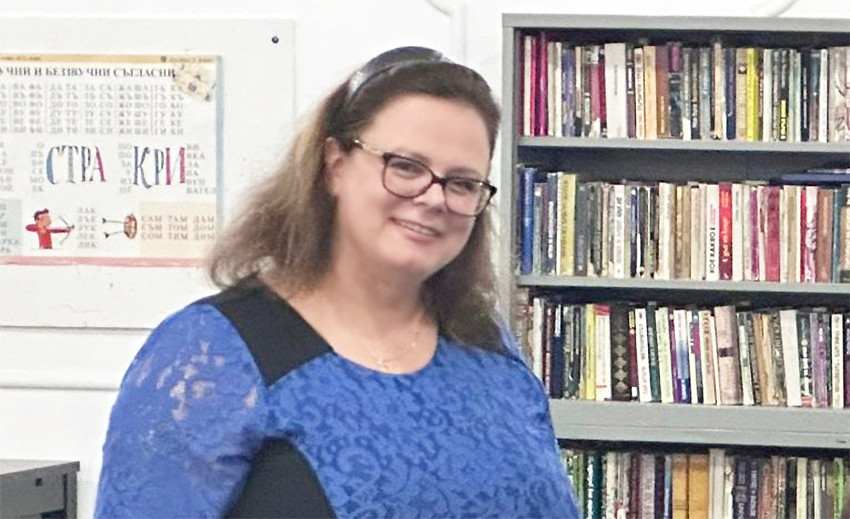
“We have a small but close-knit community in Kuwait, the children of my friends are here. My own children were very small when I joined the Bulgarian school, but now they attend it too. To me it is important that the children continue to grow up in an environment like that and to find their own Bulgarian identity.”
Though the Bulgarian children coming to the school are citizens of the world, that does not make them any less Bulgarian, Milena Baeva says. 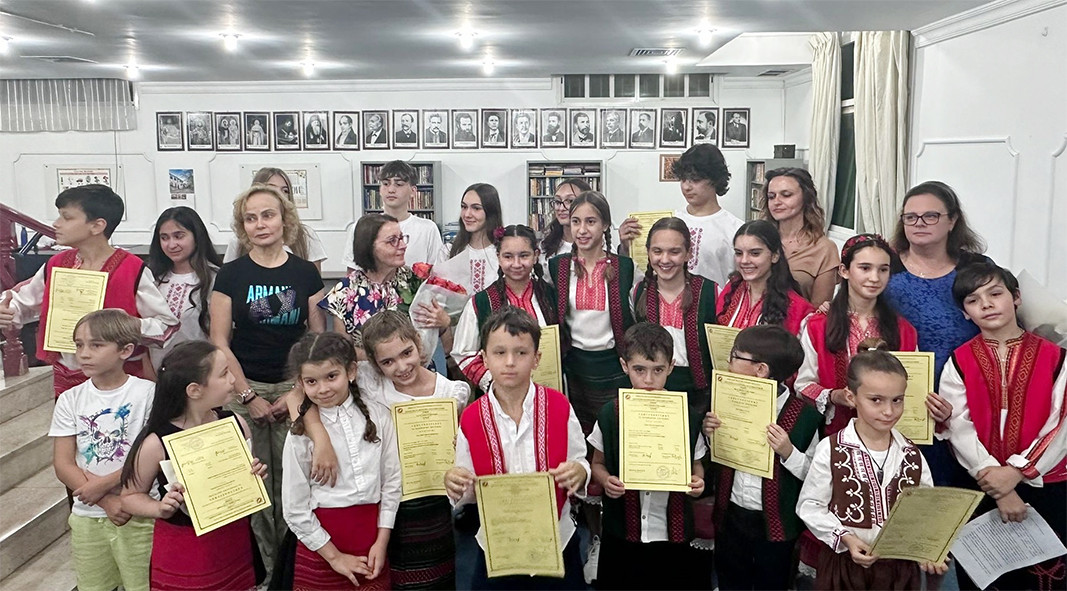
According to unofficial data, the Bulgarian community in the State of Kuwait is no more than 300-350 people, says Milena Baeva. To be able to work in Kuwait you need a work visa which is only issued to highly qualified experts. That is why the Bulgarian community in the country consists mostly of university lecturers, teachers, nurses and engineers, Milena Baeva explains. “This makes it rather difficult to find qualified teachers for the Bulgarian school,” she says.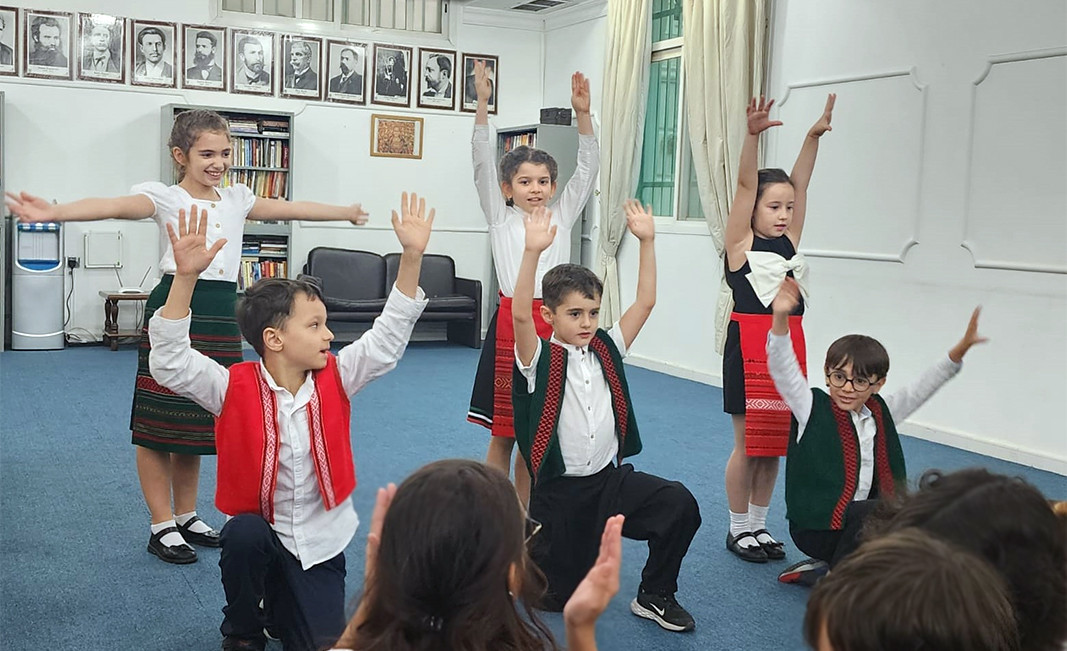
Even though it is so small, the Bulgarian community in Kuwait follows what is happening in Bulgaria with keen interest.
“At times I have the feeling we, the people living abroad, are more active when it comes to elections, to following politics, the messages imparted even than many people I know who live in Bulgaria. It is only human to hope things will turn out well. I would very much like to see Bulgarians stop believing in populism, in cheap promises, I would like each and every person to be aware what they actually want to see happen in this country.”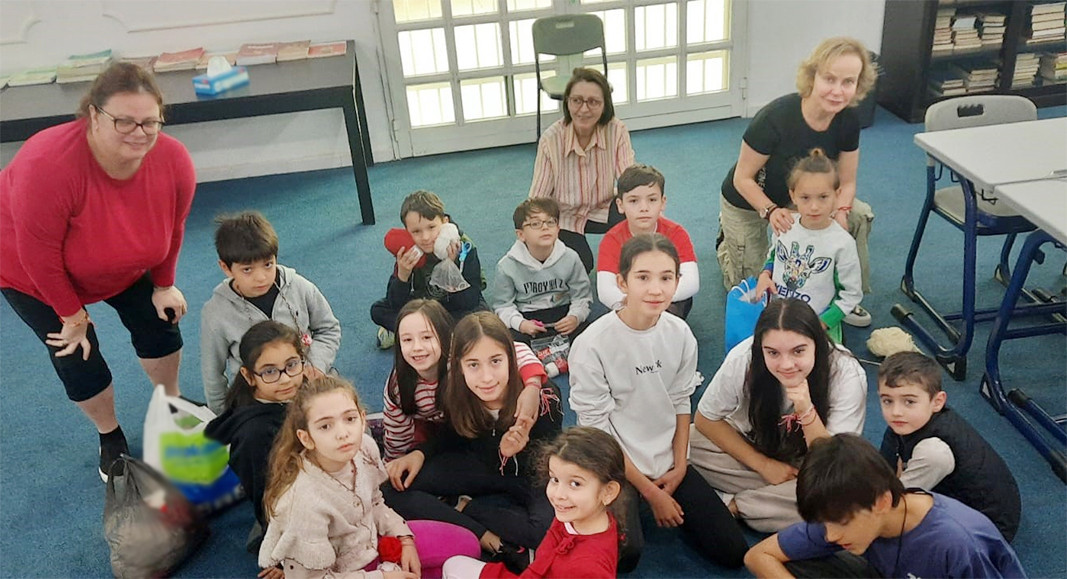
Milena believes Bulgaria must be a democratic country of Europe with its own place on the world political stage.
“I want it to be a country my children are going to come back to and be part of. I want it to make them proud of being citizens of the world.”
And she is doing what she can to make that happen, much like the over 2,000 Bulgarian teachers abroad.
Translated and posted by Milena Daynova
Photos: BTA, embassy of the Republic of Bulgaria in Kuwait, Bulgarian school Alphabet in Dublin, Bulgarian school Rose Valley in London
8 December is the day on which Bulgarian university students traditionally celebrate their holidays. The holiday is very popular in Bulgaria and often brings together not only current but also former students. The day was first celebrated in 1903..
Spicy means culture and Alexander Kyurkchiev - Sando, founder of a chilli pepper farm near Sofia and the first chilli pepper museum in this country, is sure of this. For the second year in a row he is organizing the Sofia Chilli Fest..
For more than a week now, the story of a family of breeders raising local breeds of sheep has captured the attention of not only the Bulgarian public, but also of compatriots abroad. Instead of following the drama in Parliament and the struggle for..

+359 2 9336 661
